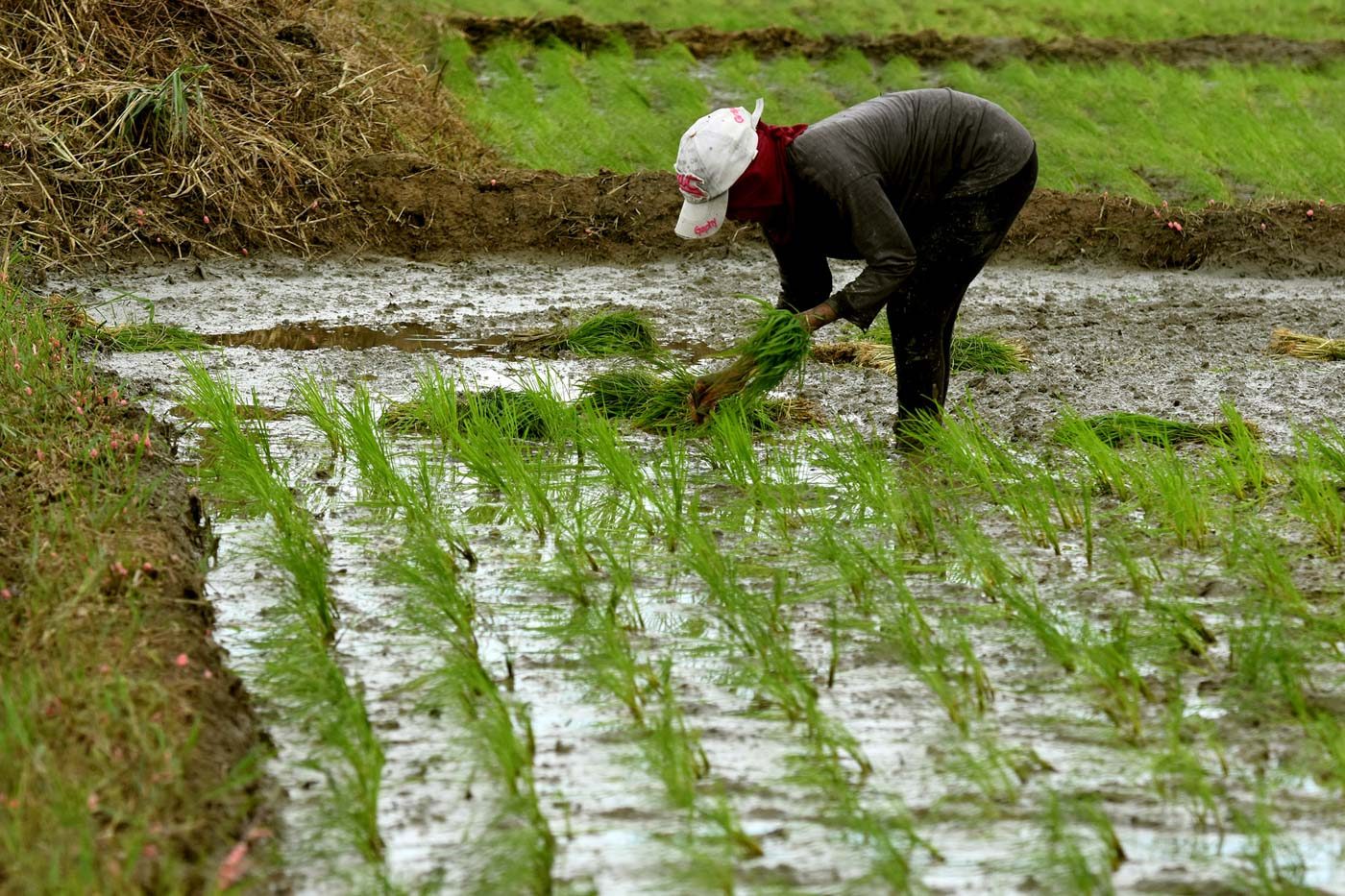SUMMARY
This is AI generated summarization, which may have errors. For context, always refer to the full article.

MANILA, Philippines – The government will have to settle for its current rice self-sufficiency rate to accommodate the incoming unimpeded entry of rice imports into the country.
In a press conference on Thursday, February 21, Agriculture Secretary Emmanuel Piñol said they will have to settle for a 93% self-sufficiency rate for rice. (READ: Rice self-sufficiency: the dangerous dream)
“We will maintain 93% production right now. We cannot reduce our production targets,” he added.
This goes against the earlier promise of the Duterte administration to achieve 100% rice self-sufficiency to wean off the country’s dependence on importing rice to fill up the remaining demand.
For 2019, the Department of Agriculture (DA) has set a target production of 20 million metric tons. (READ: Rice self-sufficiency: A question of geography?)
Piñol said the DA is expecting good harvest for the 1st and 2nd quarters of the year given the absence of heavy rains.
Unexpectedly, Piñol said they are not too concerned about the looming El Niño.
“[We are] thankful that El Niño will hit us just as the harvest season is over. The National Irrigation Administration can use this time to repair their systems [so] we are not too worried,” he added.
Should there be an excess in production, Piñol said it could also be easily dealt with by exporting the rice to avoid plummeting prices of the staple in the market.
“[Y]ou have not taken into account the other provision of the liberalization law. Farmers can also export rice. It sounds ridiculous, but we’re already doing it,” he added, referring to homegrown hybrid rice producer and grower SL Agritech Corporation.
To ensure that locally produced rice is of export quality, the DA is moving to have farmers shift to planting high-value rice seeds.
“By making our farmers plant better-quality rice, we can open a new market: organic rice market, Class A rice market, which could be our outlet for excess rice,” Piñol said.
NFA woes
As the National Food Authority (NFA) Council chairman, Piñol also tackled other concerns over the rice tariffication law, which limited the powers of the state grains agency.
He said they cannot assure the job security of about 1,000 NFA employees.
“I am appealing to the members of the NFA union to accept this. There’s nothing we can do about it. You cannot reverse the decision anymore. It’s already a law,” Piñol said.
“Working for the government is not a right, it’s a privilege. Let’s perform the new role given to the NFA by this law.”
In the meantime, Piñol said they will be strengthening the NFA’s remaining function to serve as the “shock absorber” if palay prices drop.
This would mean that the NFA will still continue to sell lower-priced rice in the market despite the removal of the suggested retail prices.
“The NFA will not be allowed to import rice, [but] the fact remains that the NFA will still be procuring locally produced rice,” Piñol said.
“If you’re buying palay, you have to mill it. The NFA will really still have to release it to the market. What if there’s no calamity?”
Despite the rice tariffication law removing the NFA’s power to conduct government-to-government importation, as well as regulate the importation of other traders, Piñol said private traders cannot import rice until the implementing rules and regulations (IRR) are finalized.
The DA will be holding information and consultation activities nationwide to include the inputs of private stakeholders in the IRR. These will be presented at the NFA Council meeting on March 5.
To avoid too much rice in the market, Piñol explained that President Rodrigo Duterte can impose bans by adjusting tariffs up to 180%. However, this can only work if Congress is on break. – Rappler.com
Add a comment
How does this make you feel?





There are no comments yet. Add your comment to start the conversation.